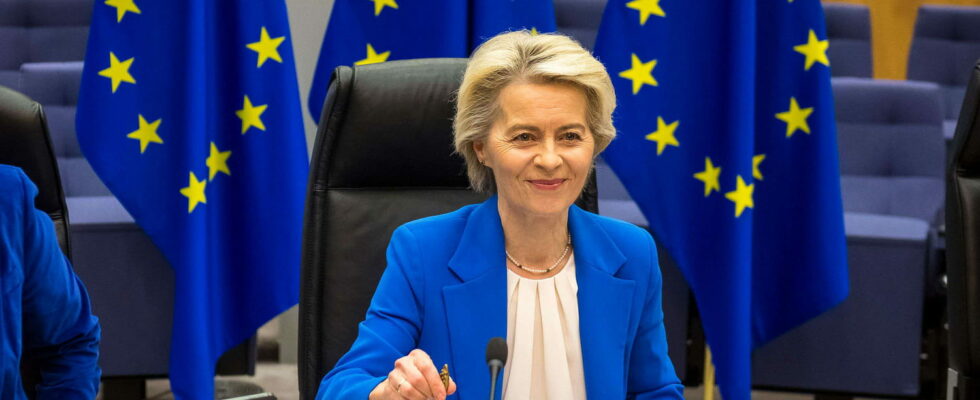Ursula von der Leyen, President of the European Commission, announced the finalization of negotiations for the free trade agreement with Mercosur this Friday, December 6, during a summit in Uruguay, despite opposition from France.
Ursula von der Leyen, present in Montevideo for the summit of Mercosur countries (economic alliance between Argentina, Bolivia, Brazil, Paraguay and Uruguay), announced that the negotiations on the free trade agreement were finalized. She hailed “a victory for Europe”. The President of the European Commission had, in fact, assured X on the eve of the summit that this agreement would be beneficial for both parties: “We have the chance to create a market of 700 million people. The largest commercial partnership and investment that the world has ever known. However, the agreement still needs to be validated by European countries: “I am now looking forward to discussing it with European countries,” declared Urusula von der Leyen during a press conference. If the treaty is ratified, tariffs on many products, such as meat, would be eliminated or at least reduced.
“I know that there is strong opposition, support for isolation and fragmentation, but this agreement is a response showing that we are united on the international scene,” added Ursula von der Leyen in Montevideo this Friday. Among these oppositions, France is at the forefront. This Thursday, December 5, Emmanuel Macron reaffirmed his disagreement with the treaty “as it stands” with Ursula von der Leyen. This opposition comes from all political sides. “The presence in Uruguay of Ursula Von der Leyen, who boasts of accelerating the finalization of the agreement with Mercosur, is a real provocation”, lamented on X Jordan Bardella, president of the National Rally. Opinion shared by the coordinator of La France insoumise, Manuel Bompard, who wants France to “clearly say that it will never accept this agreement”. This announcement also comes at a time when great political instability is affecting the country after the resignation of Michel Barnier. This could weaken the French diplomatic position.
Italy joins France, a blockage still possible?
France is particularly concerned about the impact of the treaty on the environment and agriculture. France fears unfair competition from Latin American products subject to much less demanding standards than in Europe. France is supported in its opposition by Poland. Italy has also just, this Thursday, December 5, rejected the agreement as it stands. “The Italian government considers that the conditions are not met to subscribe to the current text” and that “signing can only take place provided that adequate protections and compensation in the event of imbalances for the agricultural sector are put in place”, explained government sources, as reported The Parisian. This is powerful support for France. To form a blocking minority, four member states, bringing together 35% of the EU population, must come forward. Between them, the 35% threshold has been reached, but there is still another country to convince. Austria and the Netherlands had also already expressed reluctance.
Conversely, the treaty is supported by two strong European blocs: Germany and Spain. They want to ratify the agreement before the arrival in January of Donald Trump at the White House, who has threatened to increase customs duties. If the European Council validates the text, it will then be submitted to the European Parliament, which will have to vote on it by a majority for it to be put in place. On this scale, France could make itself heard, but it is possible that the European Commission separates the commercial aspect from the political aspect of the agreement. Thus, the commercial part would escape this unanimous ratification and a majority vote would become sufficient.
